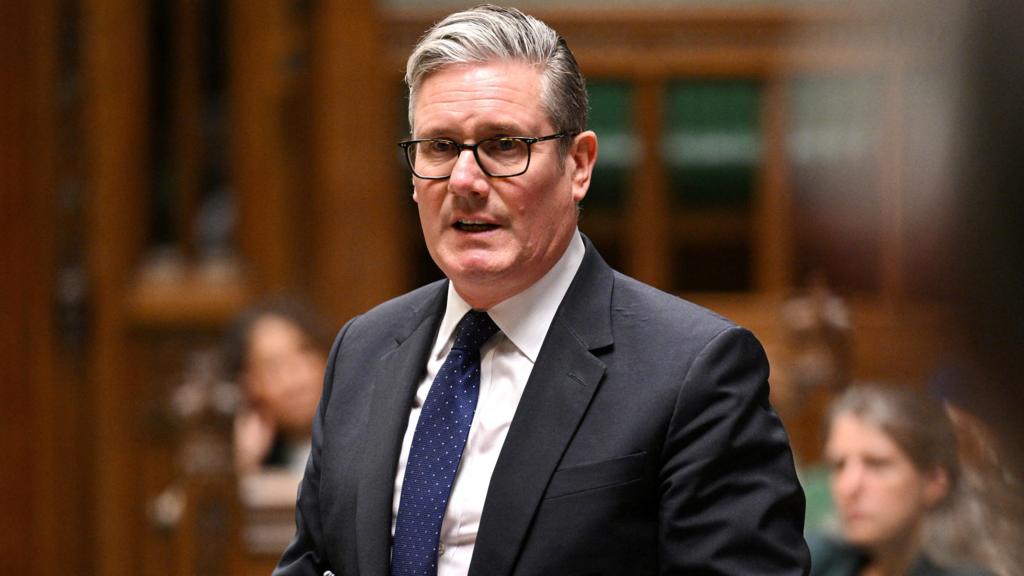The government is reportedly poised to announce an agreement with Labour rebels regarding its proposed changes to welfare benefits.
Sources speaking to the BBC indicate that existing claimants of Personal Independence Payment (PIP) will continue to receive their current level of support, as will those receiving the health component of Universal Credit. The planned reductions will reportedly only affect future claimants.
Furthermore, ministers are expected to expedite a £1 billion support package that was originally slated for 2029.
These concessions represent a significant shift in the government’s position, which faced potential defeat if it failed to address the concerns of over 100 of its own backbenchers.
The development follows efforts by Sir Keir Starmer on Thursday to solidify support among the 120 Labour MPs who backed an amendment aimed at halting the government’s welfare bill, ahead of a crucial Commons vote scheduled for Tuesday.
During a recent session in the Commons, Sir Keir expressed his desire to “see reform implemented with Labour values and fairness.”
He acknowledged that MPs across the political spectrum were “eager” to reform the “broken” welfare system.
Rebels have reportedly indicated to the BBC that their colleagues are largely satisfied with the concessions, increasing the likelihood of the bill’s passage.
However, Peter Lamb, Labour MP for Crawley, stated on social media that he would not support the bill, deeming the changes “insufficient” and accusing ministers of dismissing superior alternatives.
The Universal Credit and Personal Independence Payment Bill proposes alterations to the eligibility criteria for specific disability and sickness benefits.
Ministers have asserted that the legislation, which aims to achieve annual savings of £5 billion by 2030, is essential to curb the rising number of benefit claimants.
Chancellor Rachel Reeves incorporated these cuts into her Spring Statement in March, as part of efforts to meet her economic objectives.
The precise impact of the revised reforms on the government’s spending plans remains unclear.
According to the Institute for Fiscal Studies (IFS), a policy research organization, spending on health-related benefits for working-age individuals has risen from £36 billion to £52 billion between 2019 and 2024.
Without systemic changes, this figure is projected to double to £66 billion by 2029.
Nevertheless, Labour MPs have voiced concerns regarding aspects of the government’s proposals, including the requirement for PIP claimants to demonstrate a greater need for assistance with tasks such as food preparation, communication, and personal hygiene.
The Universal Credit and Personal Independence Payment Bill is scheduled for its second reading on Tuesday, providing MPs with their initial opportunity to either support or reject the legislation.
Should the legislation clear this initial hurdle, it will then undergo several hours of scrutiny by all MPs the following week, rather than a more extended review by a dedicated committee.
This marks the third policy reversal by the government in a month, potentially weakening the Prime Minister’s authority.
It follows the Prime Minister’s decision to reinstate winter fuel payments and the ordering of a grooming gangs inquiry that he had initially opposed.
The Conservative Party has characterized the concessions offered to Labour rebels as “the latest in a growing list of screeching U-turns” by the government.
Shadow Chancellor Mel Stride stated, “Under pressure from his own MPs Starmer has made another completely unfunded spending commitment.”
An anonymous source, who played a significant role in coordinating the welfare amendment, told the BBC that the previous winter fuel concessions had emboldened many of the rebels in this instance.
According to the source, MPs “all voted for winter fuel [cuts] and have taken so much grief in our constituencies, so colleagues think why should I take that on again?”.
Reportedly, discussions regarding the amendment began after Work and Pensions Secretary Liz Kendall extended an olive branch to rebels by increasing the transition period for those losing PIP from four to 13 weeks.
Sign up for our Politics Essential newsletter to stay informed about the latest developments in Westminster and beyond.

